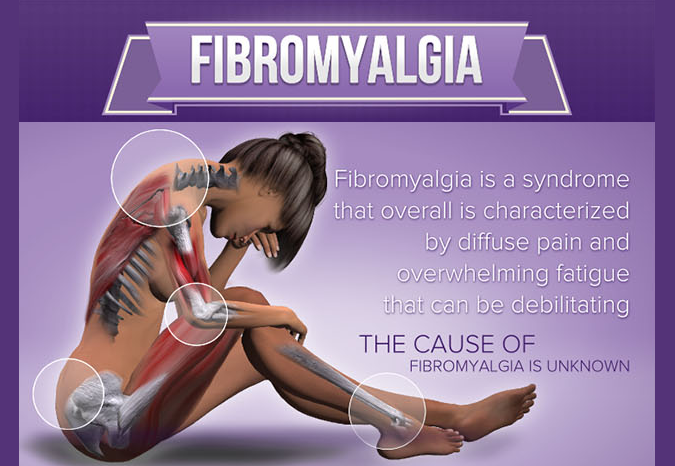Fibromyalgia is a disorder characterized by widespread musculoskeletal pain accompanied by fatigue, sleep, memory and mood issues. It is believed that fibromyalgia amplifies painful sensations by affecting the way the brain and spinal cord process painful and nonpainful signals. Symptoms often begin after an event, such as physical trauma, surgery, infection or significant psychological stress. The symptoms gradually accumulate over time with no single triggering event. Women are more likely to develop fibromyalgia than are men. Many people with this condition experience tension headaches, temporomandibular joint (TMJ) disorders, irritable bowel syndrome, anxiety and depression. While there is no cure for fibromyalgia, a variety of medications can help control symptoms including exercise, relaxation and stress-reduction.

The primary symptoms of fibromyalgia include widespread pain, fatigue, and cognitive difficulties. The pain associated with fibromyalgia is constant and lasts for at least three months on both sides of your body and above and below your waist. People with this condition often awaken tired, even though they report sleeping for long periods of time. Also, the sleep is often disrupted by pain, restless legs syndrome and sleep apnea. A symptom commonly referred to as “fibro fog” impairs the ability to focus, pay attention and concentrate on mental tasks.
Treatments for fibromyalgia include both medication and self-care strategies. It emphasizes on minimizing symptoms and improving general health. Medications can help reduce the pain of fibromyalgia and improve sleep, including pain relievers, antidepressants, and Anti-seizure drugs. A variety of different therapies can help reduce the effect that fibromyalgia has on your body and your life. This includes a physical therapy, which improve your strength, flexibility and stamina. Also, occupational therapy helps make adjustments to people’s work area or the way you perform certain tasks that will cause less stress on your body. Counselor can also help strengthen beliefs.
Chicago style
